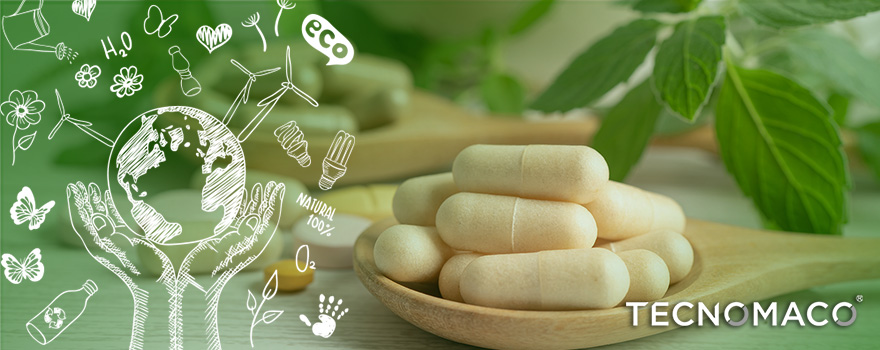
In recent years, nutraceuticals have established themselves as a Made in Italy excellence, investing in the efficacy of active ingredients, the quality of raw materials, innovation and sustainability. Driving the growing interest of consumers in new forms of food, in addition to a greater attention to their own health and well-being, is the idea of ethical and sustainable consumption, capable of limiting occurrences such as the depletion of natural resources, the emission of greenhouse gases, intensive livestock farming and cruel slaughter.
Nutraceuticals and novel foods, in addition to representing the new frontiers of food, will play an active role in protecting the environment through the use of sustainable agricultural practices, the promotion of healthy lifestyles and environmentally friendly consumption. Many companies in the industry have long been adopting strategies that include using renewable energy sources, limiting waste, and introducing alternative proteins to animal protein, the production of which accounts for about 20 percent of global pollution.
Global expansion
According to the report by Area Studi Mediobanca by 2027, the global functional food market could reach $750 billion, growing at an average annual rate of 6.9 percent. Driven by this expansion will be factors such as an increase in the aging population and typical diseases of old age; an increase in phenomena such as overweight and obesity; and a widespread deficiency of essential nutrient components, to be reintroduced through the use of dietary supplements.
New consumer trends will not only look at prevention and functional eating habits, but will be strongly influenced by issues such as sustainability and ethical production. In particular, the reweighting of the diet toward plant proteins will find support “in the orientation of a growing segment of the population toward reducing animal exploitation for food and the broader goals of environmental sustainability.”
Dietary supplement consumption in Italy
In 2022, the Italian dietary supplement market had a turnover of 4 billion euros. According to the study conducted by the international research institute Future Concept Lab, on behalf of the association Integratori & Salute, more than 30 million people in Italy would use them. The survey, conducted in April, involved 1,000 people, aged between 18 and 70. The data show that in the 35-54 age group, with a slight prevalence of women, consumption is mainly aimed at strengthening the immune system. The main purchasing channel is pharmacies and parapharmacies, which together account for 70.2 percent of sales. They are followed by supermarkets and specialised health websites, e-commerce company Amazon, and supplier websites. Primarily promoting the use of these valuable wellness allies are health professionals: physicians, pharmacists, therapists, nutritionists and physical therapists.
“Supplements are and will increasingly be ‘coaches’ at people’s side, able to ensure that the body gets the right amount of what contributes to overall well-being at all stages of life, beyond the good practices already in place,” commented Integrators & Health President Germano Scarpa.
The growing environmental awareness among Italians
Three main factors are contributing to Italians’ new consumption habits:
- a focus on one’s mental and physical well-being;
- the desire to follow a healthy and balanced diet;
- environmental sensitivity.
In recent years, Istat has noted a growing concern for environmental issues. The 2021 data show that of greatest concern among Italians are climate change (52.2 percent), air pollution (51.55), waste production and disposal (44.1 percent), water pollution (40.1 percent) and the greenhouse effect (34.9 percent). The analysis of eco-friendly behaviours revealed that, in the population over the age of 14, they are mainly aimed at the conservation of natural resources. The overwhelming majority of the sample said they routinely take care to avoid wasting energy (67.6 percent) and water (65.9 percent); 37.1 percent of respondents said they routinely read ingredient labels and 24.4 percent buy zero-mile products, with a slight prevalence in Central regions.